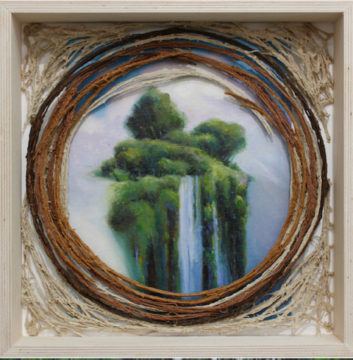From BBC:
 In bare skin, tingling in the 8C (46F) water, Craig Foster swims into the waters off the Western Cape of South Africa and immerses himself in the Atlantic Ocean. In many ways, he is a broken man. Depleted and disconnected, he slowly dives into the all-powerful and unfriendly waters, and finds shelter in the tranquil kelp forest below – an area which he has not connected with since his childhood. As he glides through the undisturbed kelp landscape, he is overwhelmed with his smallness in this almost alien landscape. He is alone, but not for long.
In bare skin, tingling in the 8C (46F) water, Craig Foster swims into the waters off the Western Cape of South Africa and immerses himself in the Atlantic Ocean. In many ways, he is a broken man. Depleted and disconnected, he slowly dives into the all-powerful and unfriendly waters, and finds shelter in the tranquil kelp forest below – an area which he has not connected with since his childhood. As he glides through the undisturbed kelp landscape, he is overwhelmed with his smallness in this almost alien landscape. He is alone, but not for long.
Meandering through the tangled kelp terrain equipped with curiosity and a camera, Foster takes us through his moving story of healing in the hit Netflix documentary My Octopus Teacher. Soon, he has his first sighting of a strange spectacle: a moving conglobulation of shells. Then, suddenly, an octopus emerges and retreats into the kelp. This is Foster’s first encounter of the octopus that serendipitously teaches him, over the next few months, about purposeful and deep connection. As he dives deeper into this unlikely relationship, Foster immerses himself in the natural world, getting to know the subtleties of the wild and his place in it, which eventually sets him free. This is healing.
As humans, we face diverse experiences and pressures that require healing. And as a new epoch is unfolding – the Anthropocene – deep planetary changes and environmental destruction are necessitating healing at individual, community and global scales. Feelings of pain, suffering, fear, anger and grief for those directly affected by climate change or those watching through TV screens are real. From the Inuit in Canada to Australian farmers and island nations, ecological grief and anxiety have been recorded across the world.
More here.
